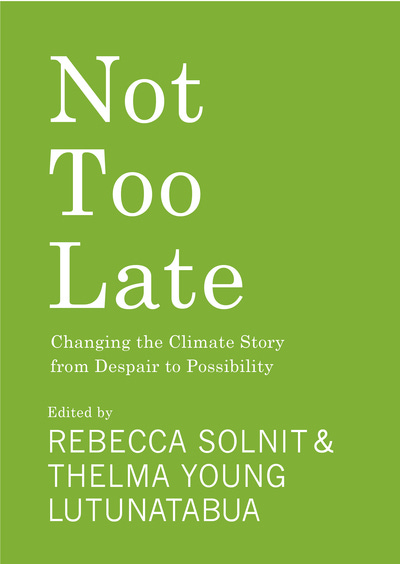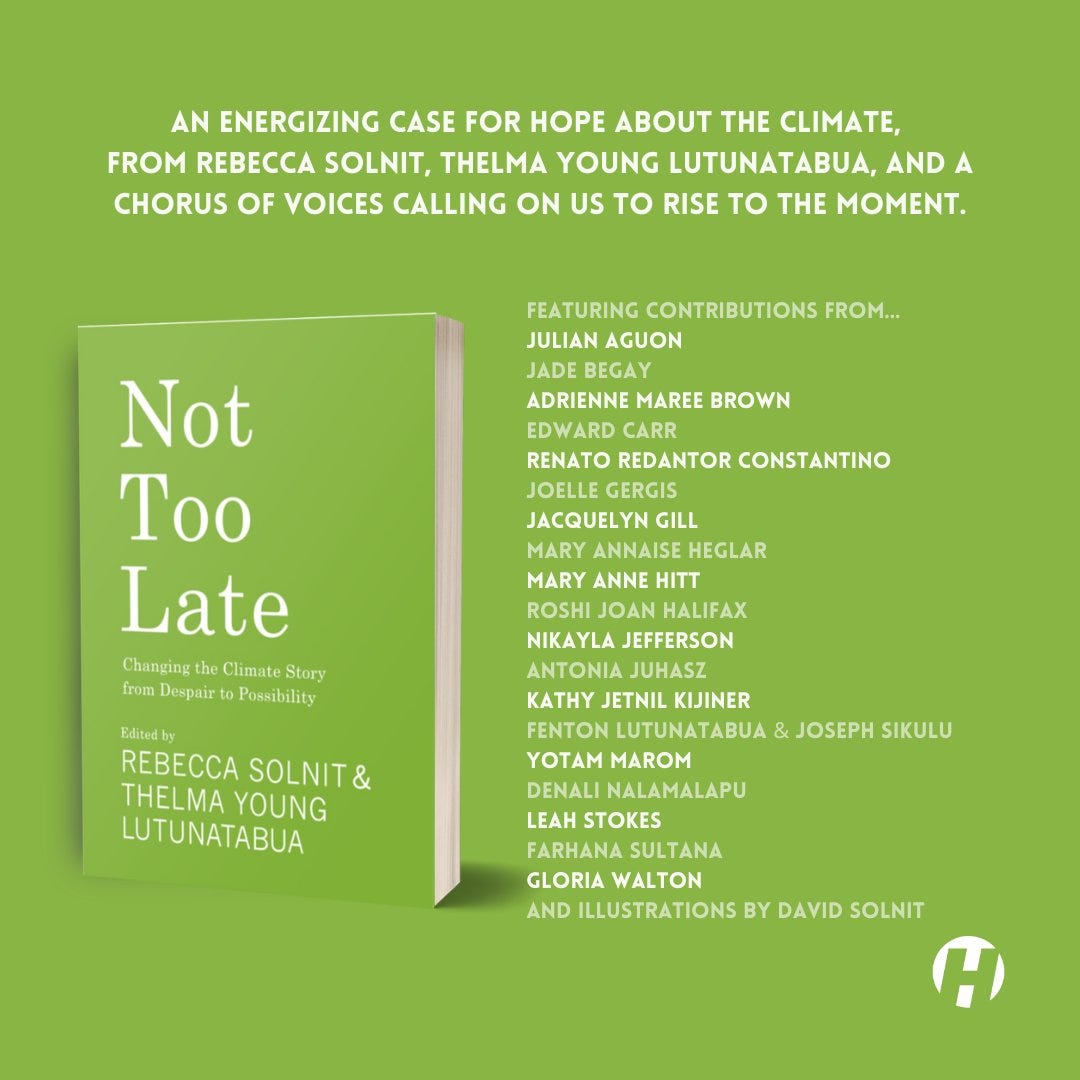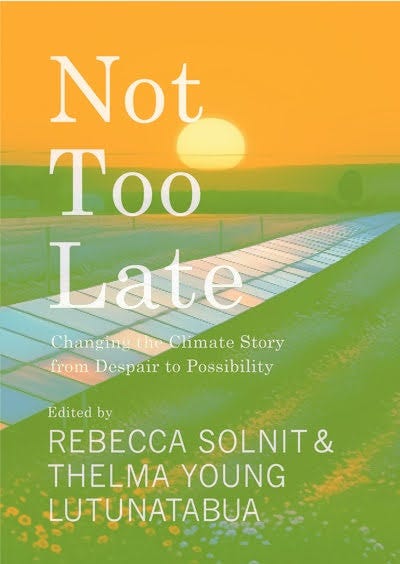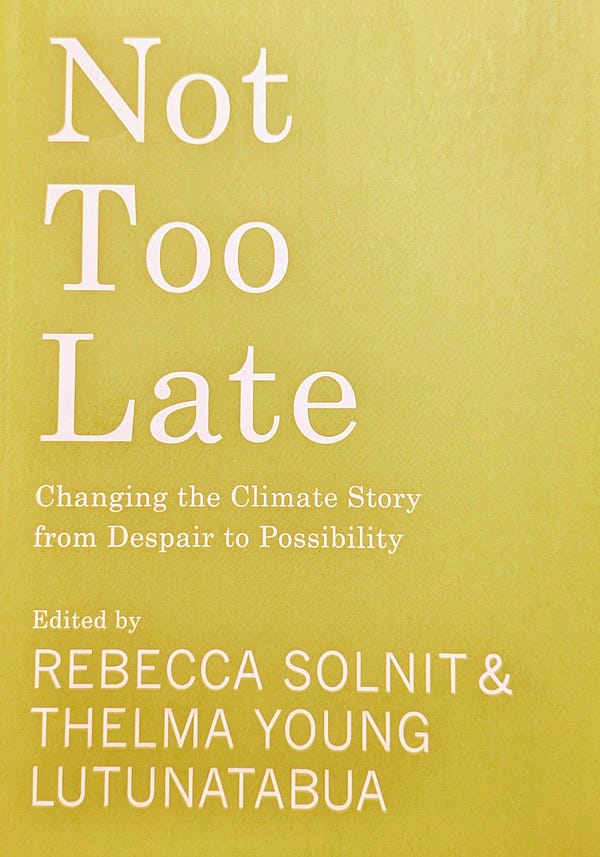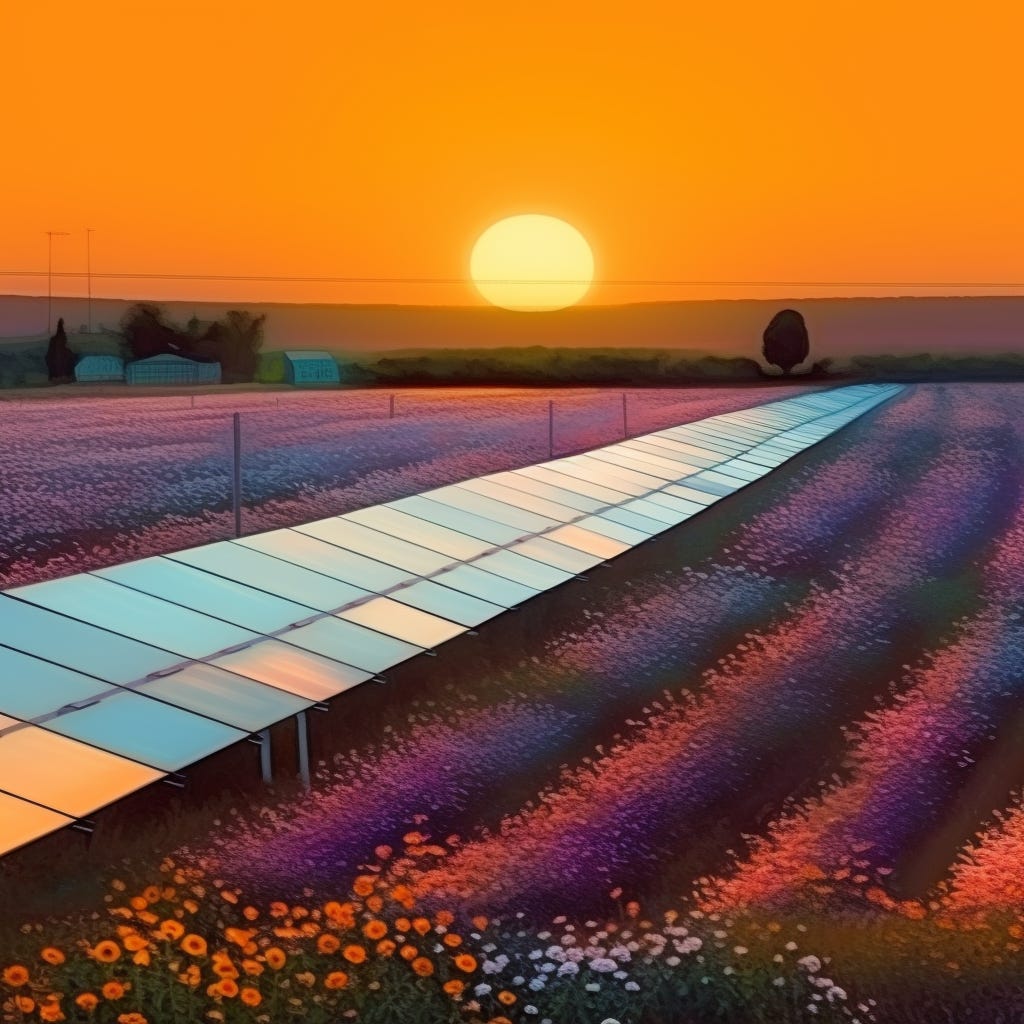This Is The Best Book I’ve Ever Read to Empower Anyone with Real Climate Hope
Not Too Late: Changing the Climate Story from Despair to Hope
"To hope is to accept despair as an emotion but not as an analysis. To recognize that what is unlikely is possible, just as what is likely is not inevitable."
—Rebecca Solnit
This Is The Best Book I’ve Ever Read to Empower Anyone with Real Climate Hope
There are a lot of books about climate.
And I've read too many of them.
But the best book I’ve read on cultivating true hope in the face of climate disruption is Not Too Late: Changing the Climate Story from Despair to Hope edited by Rebecca Solnit and Thelma Young Lutunatabua.
For a few reasons:
Excellence: This book is a bold dose of hope— and the real deal. It’s giving, the cracks where the light gets in. Since getting a copy, I can’t count how many times I’ve returned to pick up Not Too Late for solace and climate courage in the face of our cascades of crises. The compilation of expert voices front-loading solutions serving Indigenous peoples, the Global South, and racial justice from across the climate movement is so good, I can see everyone at your next climate strike carrying one of these books. The physical book is the perfect size, too— purse-able and purchasable as of this week.
Essays: All incredible, clear, and concise. Compiled from a powerful collective of climate luminary contributors: Julian Aguon, Jade Begay, adrienne maree brown, Edward Carr, Renato Redantor Constantino, Joelle Gergis, Jacquelyn Gill, Mary Annaise Heglar, Mary Anne Hitt, Roshi Joan Halifax, Nikayla Jefferson, Antonia Juhasz, Kathy Jetnil Kijiner, Fenton Lutunatabua and Joseph `Sikulu, Yotam Marom, Denali Nalamalapu, Leah Stokes, Farhana Sultana, and Gloria Walton— all generous with wisdom and spirit.
Epigraphs: Everything is foundational— critical climate progress especially. Not Too Late weaves these interconnections throughout in form and function, honoring the work of changemakers, organizers, poets, advocates, fighters, workers, and dreamers by linking voices within essays and including quotes epigraphed ahead of essays. There are even a couple inspired illustrations. Altogether creating a climate collage of empowering inspiration— all portals to portals to portals to a new world breathing.
Esteem: Everyone could use a pick-me up once in awhile. In the face of collective crises, a clear-eyed and heartful look at where we’ve been to know where we can go— a collective existential pep talk— THAT’s what’s giving: Not Too Late. Every essay and epigraph hold a part of this esteem-building ethos. But one of the most impactful parts of the book for a long time climate activist like myself is on page 92 “An Extremely Incomplete Timeline of Climate Victories.” To glimpse some breadth and depth of the climate movement’s work for a better world collected is a powerful motivational shock to agency. This is one of those books where every corner shows you the collective heroes journey we are all on. And invites your to take part from where you are. With hope.
Earth: Not only is Not Too Late giving Climate Victorious— but essays throughout are also brimming with Climate Visions of a just and sustainable world. As visionary Mary Anne Hitt shares in her essay "A Love Letter from a Clean Energy Future"— "I know all this seemed impossible a decade ago, when it felt as if everything was falling apart and our climate might be doomed. But everything we did mattered. All of it." With the verve to envision victory from a collective of powerful expert voices on climate— Not Too Late is a triumph.
If you're at all interested in holding hope while keeping onward facing the climate crisis, I can't recommend this book enough.
(And if you've read it, do you agree? What other book would you recommend for beginners?)
What gives me hope is that human history is full of examples of people across the ages who have risen to face the great challenges of their time and have succeeded. Victory is not the arrival in some promised land; it is the series of imperfect victories along the way that edge us closer to building the critical mass that eventually shifts the status quo.” —Rebecca Solnit




